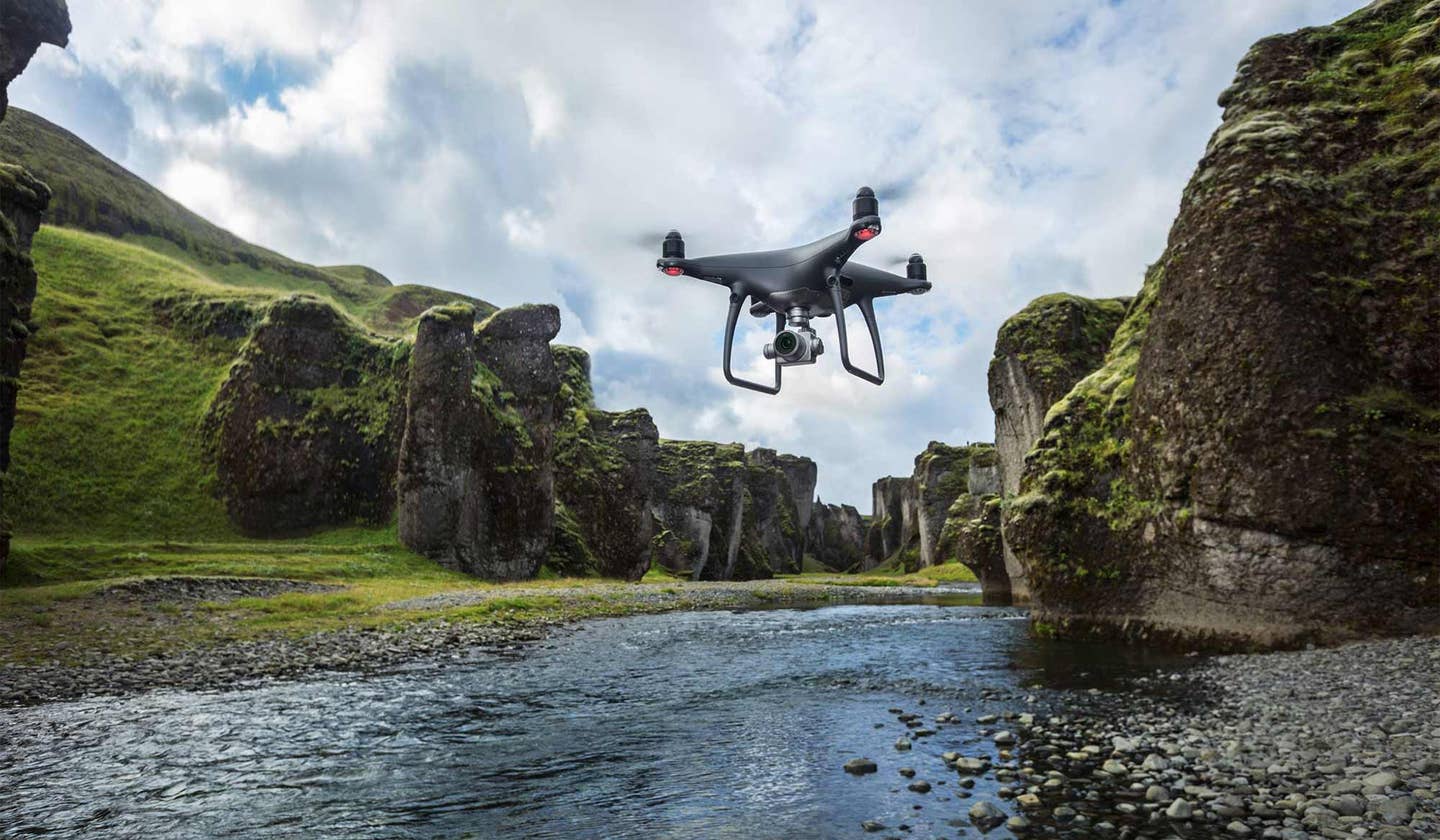
DJI, manufacturer of recreational drones like the Phantom 4 Pro Obsidian edition, denies that it has been sharing sensitive information with the Chinese government. DJI
It’s hard to forget the holiday season of 2015. You could walk into a Best Buy and walk out with a DJI Phantom 3 Standard for $250. Black Friday sales had taken an already well-priced drone and made it a must have item for a lot of American households.
I remember, because I paid $750 for the same drone not a month prior — turns out patience is a virtue. The Phantom 3 Advanced and Pro models also saw a dramatic price drop that holiday season as DJI prepared to unleash its new Phantom 4 complete with obstacle avoidance, and then yet again with the Mavic and Spark.
That's where things start to get interesting, because according to a Homeland Security Investigation filed by the Special Agent in Charge (SAC) Intelligence Program in Los Angeles, the retailing tactics DJI engaged in were illegal and that DJI "is selectively targeting government and privately owned entities within these sectors to expand its ability to collect and exploit sensitive U.S. data."
“In 2015, DJI aggressively dropped its prices by as much as 70 percent in less than one year, effectively forcing its main competitors out of the market," the report reads. "Since that time, DJI's biggest competitors, Parrot in France, 3D RoboticsUSPER in the U.S., and Yuneec in China, all stopped production due to their inability to match DJI's prices... Using dumping techniques, DJI was able to sell category one UAS in the United States for approximately $900. Comparatively, other group one category UAS with the same level of technology sold for $3,500.”
The report also claims the Chinese government is possibly using information acquired from DJI systems as a way to target assets they are planning to purchase.
“A large family-owned wine producer in California purchased DJI UAS to survey its vineyards and monitor grape production. Soon afterwards, Chinese companies began purchasing vineyards in the same area. According to the SOI, it appeared the companies were able to use DJI data to their own benefit and profit.”
DJI started offering clients a normalized difference vegetation index (NDVI) infrared scanner to use with its UAS.
“The NDVI picked up reflective images of leaves to calculate the nitrogen levels of plants. The device provided the user with details such as how much nitrogen to add to the soil to optimize plant growth. It also collected information on the location and lifecycle stages of food.”
As of May 2017, DJI’s only customers using the NDVI scanner were wine producers along the coast of California; however, the scanner would work with cash crops.
“SIP Los Angeles assesses with low confidence if the cash crops industry began using the scanner, it could allow China the opportunity to influence the cash crop market and futures.”
Essentially SIP Los Angeles believes DJI could be collecting sensitive intel that the Chinese government could use to conduct physical or cybernetic attacks against the United States. Similarly, China could in turn provide that information “to terrorist organizations, hostile non-state entities, or state-sponsored groups to coordinate attacks against U.S. critical infrastructure.”
The UAS capture close-up imagery and GPS information on water systems, rail systems, hazardous material storage systems, and construction of highways, bridges, and rails. If sabotage is not the end goal, someone is certainly getting a leg up on the real estate market.
In a statement on the company's website, DJI officials denied any wrongdoing and blamed the access of an AWS server repository by "unauthorized parties" on developers who were terminated for "inexcusable" behavior. The company also claims that accusations of threatening and/or silencing a participant in the DJI Bug Bounty System are false.

Sign-up for newsletters & special offers!
Get the latest FLYING stories & special offers delivered directly to your inbox






